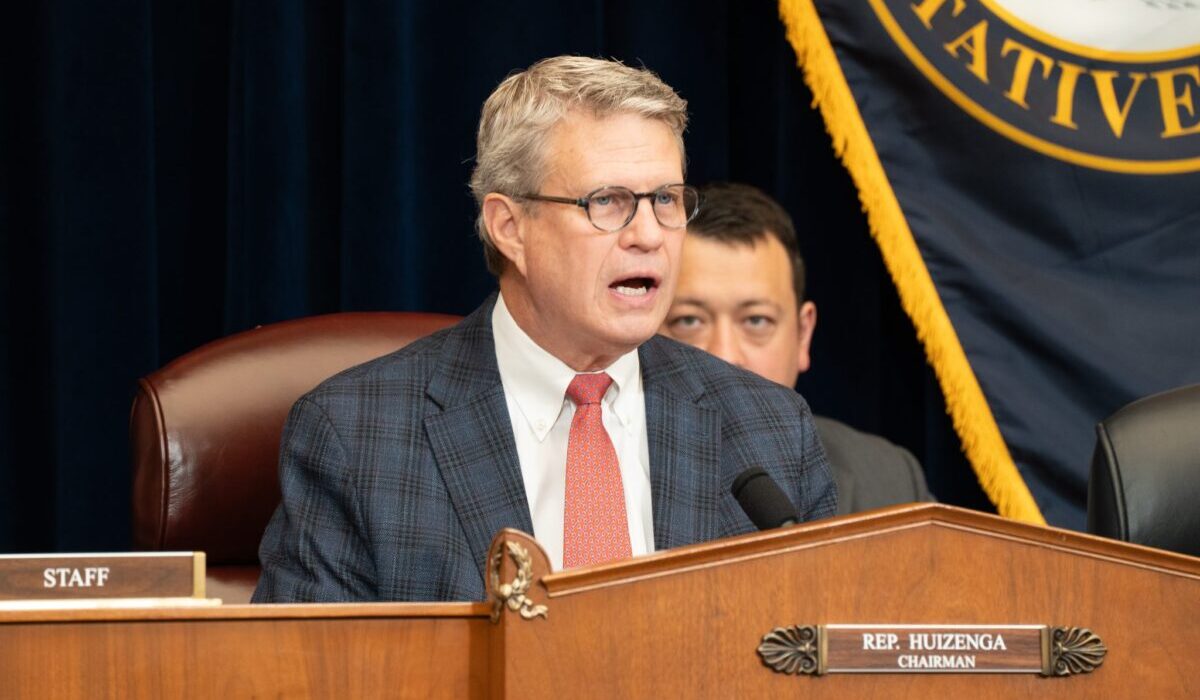Representative Bill Huizenga, a Michigan Republican and chair of the House Foreign Affairs Subcommittee on South and Central Asia, warned Thursday that Afghanistan has once again become a safe haven for terrorist groups, posing renewed threats to South and Central Asia and beyond, nearly four years after the U.S. military withdrawal.
Speaking during a House Foreign Affairs subcommittee hearing titled “Assessing the Terror Threat Landscape in South and Central Asia and Examining Opportunities for Cooperation,” Huizenga said that the Biden administration’s withdrawal from Afghanistan in 2021 had significantly altered the region’s security dynamics.
“Since the Biden administration’s ill-conceived and executed withdrawal from Afghanistan, the subsequent Taliban takeover, the terror threat landscape in South and Central Asia has changed dramatically,” Huizenga said. “Despite the Taliban’s Doha Agreement commitments, Afghanistan has once again become a hotbed for terrorists looking for safe harbor as they grow their ranks and abilities to project attacks across the region and, frankly, the world.”
Huizenga pointed specifically to heightened threats from groups like ISIS-K and Tehrik-i-Taliban Pakistan (TTP), warning that Pakistan is experiencing its highest rates of terrorist violence in years. He also referenced the recent deadly attack in Pahalgam, saying it served as a reminder that militant activity in the Kashmir region has not abated.
“For decades, the United States has remained the global leader in the fight against terrorism,” Huizenga said. “We’ve engaged our international partners through bilateral agreements and multilateral mechanisms that have supplied our allies with training and equipment to stop the spread of terrorism.”
The lawmaker also revisited the 2021 ISIS-K bombing at Abbey Gate outside Kabul airport, which killed 13 American servicemembers and 170 Afghan civilians. He noted that one of his own constituents was wounded in the attack and emphasized that the threat from ISIS-K has only expanded since.
“The Taliban claims to be doing their best to eliminate the ISIS-K threat,” Huizenga said. “However, while the Taliban claimed victory, ISIS-K continues to wreak havoc, conducting attacks that target everyone from innocent civilians to Taliban officials, while continuing its effort to radicalize and recruit from diaspora communities.”
He pointed to recent attacks attributed to ISIS-K, including deadly operations in Moscow and Tehran, and a thwarted plot targeting the 2024 Summer Olympics in Paris, as evidence of the group’s growing international reach.
Despite these challenges, Huizenga praised recent U.S. cooperation with Pakistan, including the arrest of a key ISIS-K operative involved in the Abbey Gate bombing. That suspect has since been extradited to the United States to stand trial.
But he warned that Pakistan continues to face a volatile security situation. “2024 was one of the most violent years in over a decade for Pakistan,” he said, citing the TTP and the Balochistan Liberation Army as active threats to civilians and security forces alike.
Huizenga also referred to a recent attack in Indian-administered Jammu and Kashmir that left 26 people dead, most of them tourists, describing the incident as a deliberate and brutal assault that triggered a military confrontation between two nuclear-armed nations.
As the hearing concluded, Huizenga called for a reassessment of U.S. counterterrorism tools and urged the United States to explore new avenues for engaging regional partners. “It’s essential to assess the tools that we have at our disposal to continue the fight against terrorism,” he said.





